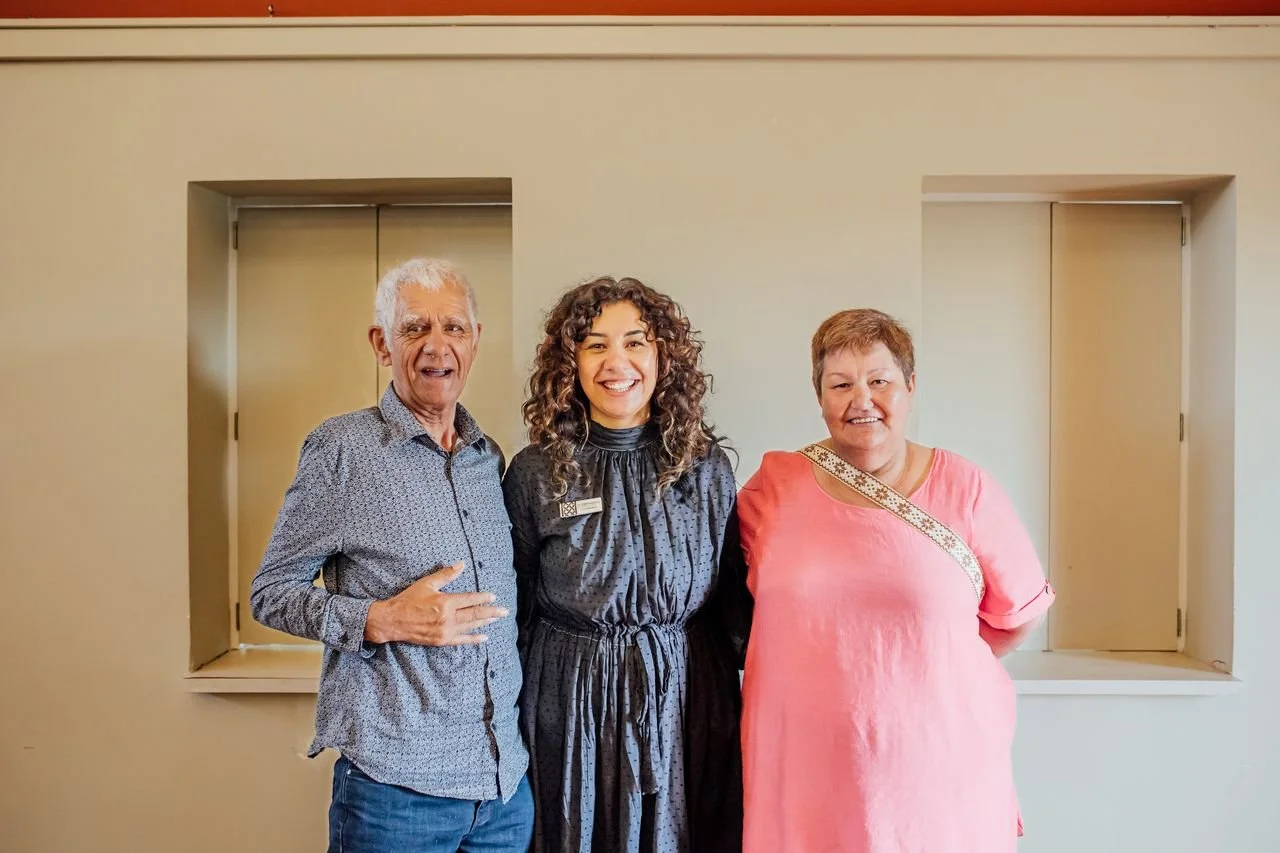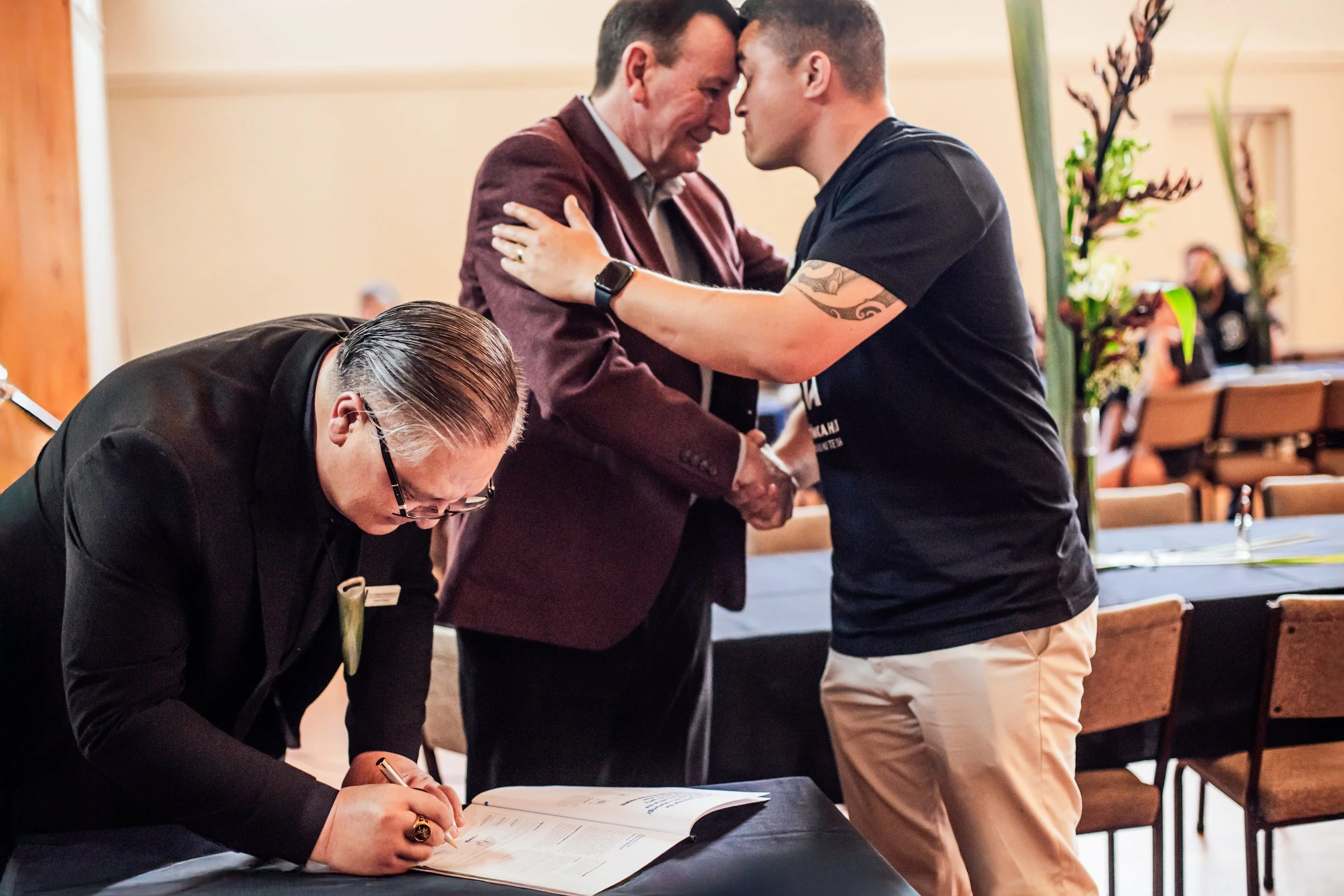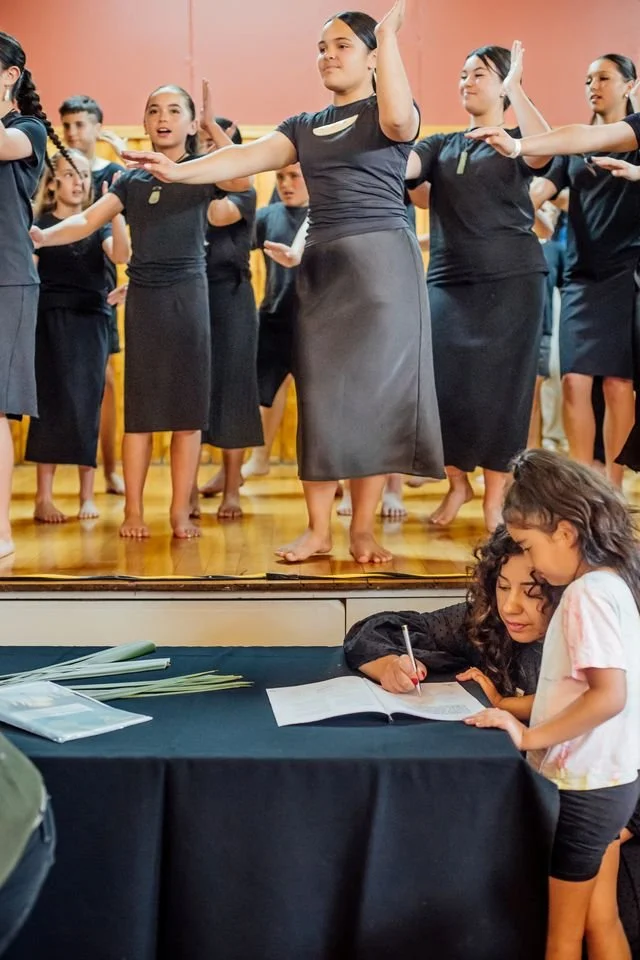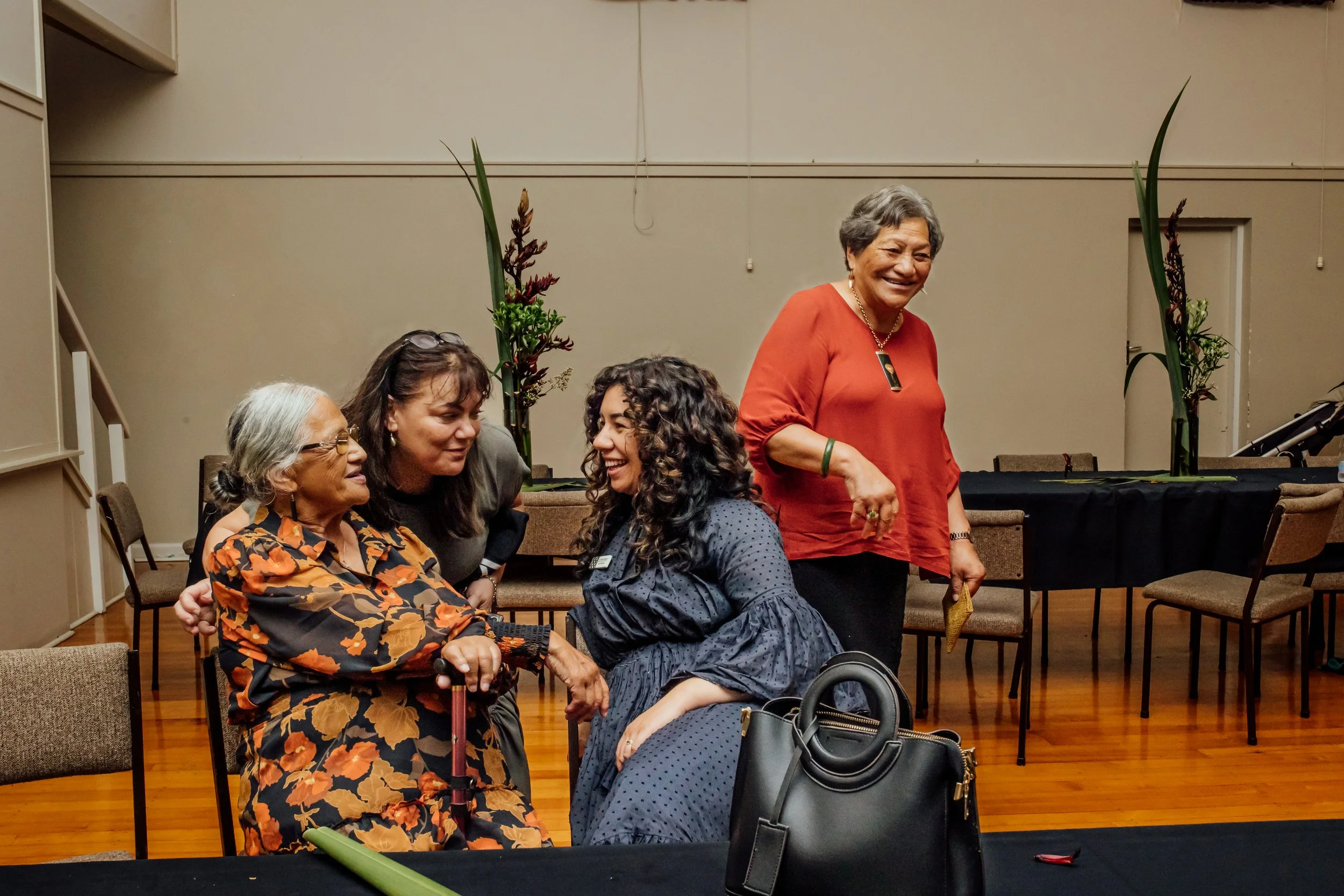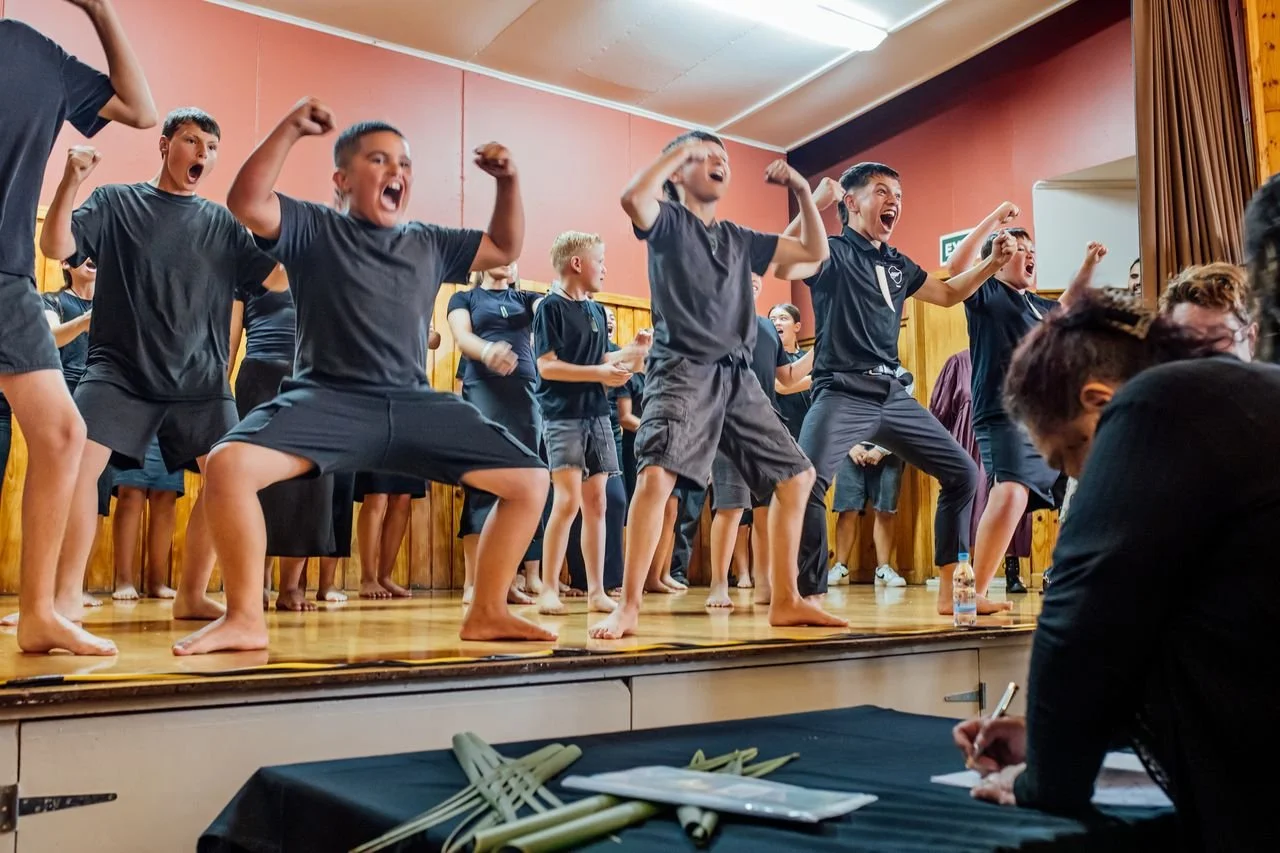Leadership—it’s in our DNA
From the ones that show up to mow the lawns at the pā to the marae komiti, from the ringawera in the kitchen to my uncles digging the hāngī pit in the early hours—service was never a badge of honour in my upbringing.
It was just what you did.
A job well done meant your whānau could gather in a space that was ready to receive.
My father was one of those people.
A Moutoa Māori Warden, kura van driver, and quiet contributor. He showed up rain or shine with his infamous phrase—“Aroha ki te tangata.”
And when he showed up, it didn’t matter who it was for. He’d visit kaumātua at Lonsdale, hold space for grieving whānau at the marae, or fix a neighbour’s lawnmower for the price of a smile and a story.
That’s the current I was raised in.
And, these are the invisible threads that shaped how I lead. I don’t move through this world asking for titles—I move asking, what does this moment need?
And more often than not, it needs the kind of leadership that’s thoughtful, unshaken, and grounded in the collective.
On December 13th 2024, I attended an event that although a public declaration—to me honoured the quiet works of many that have taken place for decades.
I joined my whānau to sign a formal partnership agreement between Te Tūmatakahuki (the collective voices of 12 hapū of Ngāti Raukawa ki te tonga within Horowhenua) and the Horowhenua District Council.
The ceremony was humble but deeply felt. It was a moment held inside one of our community’s most treasured taonga—the Foxton Memorial Hall.
More than signing a document—it was an embodiment of more than a decade of mahi led by our people for our people.
And the best part?
Our mokopuna were there.
Our kaumatua were there.
Our emerging leaders were there.
And we all signed the agreement together, collectively.
And in a moment I’ll never forget—I signed the agreement with my eldest daughter.
Everley stood beside me, steady and proud, pen in hand. Not just witnessing legacy, but writing it too. The most careful of pen strokes, I’m so grateful it was captured for me.
We signed together while the sound of our rangatahi filled the room. They were fully immersed in their passion for kapahaka and for a moment there I had a glimpse into our future.
Because, these are the moments that plant seeds in the next generation.
Not big declarations, but meaningful acts of being part of something that matters.
On reflection, I’m reminded that every decision I make is never mine alone. It’s for all of us.
I’m proudly Māori. It’s more than identity—it’s a way of moving, of thinking, of measuring impact. And as those before me have shown, when we lead with the collective in mind, we all benefit.
All my life, I’ve been called a chip off the old block. I’ve even been stopped in the street by people asking, “Are you Eddie Wakefield’s daughter?”—because yes, there’s an uncanny resemblance. And the older I get, the more I realise they’re right.
I don’t need a title.
But if that’s the legacy I carry—I’ll take it with pride.

